Year after year, the demand for voice over actors who speak with unique accents and dialects continues to increase. However, the British accent appears to be more sought-after than most. In 2017 alone, the demand for British English voices grew by 12%.
If you find this interesting, you might find this next bit even more surprising: Despite the fact that many of us refer to the sounds of England this way, it turns out there’s no such thing as a British accent.
In this article
- The Myth of the British Accent
- Different Types of UK Accents and the Countries They Belong to
- UK Accents and Dialect Descriptions
- Received Pronunciation or RP
- Manchester (Mancunian) Accent
- Cockney Accent
- Birmingham (Brummie) Accent
- London Accent
- Wales (Welsh English) Accent
- Glasgow (Glaswegian) Accent
- Edinburgh Accent
- Northern Irish Accent
- Test Your British Accent Knowledge
- What Other UK Accents Do You Know and Love?
Chances are, what most people are thinking of when they imagine a British accent, is actually called ‘RP’ or Received Pronunciation. In truth, the names of the different accents of the United Kingdom are as diverse as the populations and regions of this culturally rich group of countries.
So whether you’re looking to hire a British voice or you consider yourself a bit of an anglophile, it’s worth it to read on as we walk you through the unique and diverse sounds of the UK.
The Myth of the British Accent
Because so many people use the term ‘British accent’ when they’re searching for an English or UK sound, we’ve titled several articles and webpages featuring ‘British accents’ so that they can be found. Perhaps one of the best web pages on the topic is our interactive, audio-based UK Accent Map.
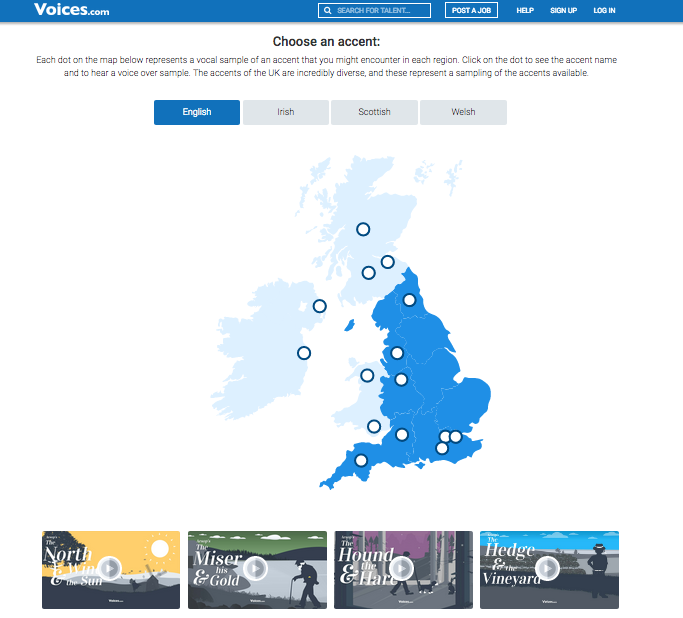
Note: In this article, we’ll explore UK accents — including their characteristic sounds and origins, but we do not address dialects. An accent relates to how you sound when you speak, whereas a dialect refers to the words you use. With a dialect, there can be variations in grammar, vocabulary and pronunciation.
Different Types of UK Accents and the Countries They Belong to
Many people are surprised to learn that the UK is more than Great Britain and consists of four countries, which are listed below. Here are some of the accents you’ll find in each UK country.
- Northern Ireland
- Accent example:
- Northern Irish accent
- Accent example:
- Britain
- Accent examples:
- Newcastle/Geordie
- Lancashire
- Liverpool
- Birmingham
- Estuary (sounds almost Australian)
- Cockney
- RP
- Welsh
- Somerset
- Cornish
- Accent examples:
- Scotland
- Accent examples:
- Glasgow/Glaswegian
- Edinburgh
- Accent examples:
- Wales
- Accent example:
- Welsh
- Accent example:
Note: This list is far from all-encompassing! There are many, many more that are not mentioned.
UK Accents and Dialect Descriptions
Here are a few descriptions of some of the accents and dialects to help you tell the difference between various UK accents.
Received Pronunciation or RP
When the rest of the world thinks of a ‘British accent,’ Received Pronunciation, or ‘RP,’ is usually the sound that they’re imagining. RP does not have a link to any particular region. Unlike some of the other distinguished sounds of the UK, RP is an accent and not a dialect (speakers are communicating in Standard English).
Characteristics of the RP Accent
While many other accents tend to drop or modify the sounds of certain letters, an RP accent is more apt to hit the sounds of each letter in a word. However, a speaker may occasionally drop the sound of certain letters — like dropping the ‘t’ in water.
Manchester (Mancunian) Accent
Appropriately, the Manchester dialect and accent, Mancunian, originates from those who reside in the North West England city of Manchester and its surrounding area.
Characteristics of the Mancunian Accent
Some characteristics of this sound include dropping the ‘r’ and ‘t’ at the end of words, (roar). The ‘t’ is also dropped when it’s in the middle of words and is substituted with a ‘glottal stop’ (e.g., the letter becomes Leah). Another characteristic also includes dropping the ‘h’ sound at the beginning of a word, so a word like ‘hand’ becomes ‘and.’
Cockney Accent
This East-London accent is technically reserved for those who are born within earshot of Bow Bells, which are the bells of St Mary-le-Bow in the Cheapside district. However, Cockney is also sometimes used to describe the accent of London’s working class.
Characteristics of the Cockney Accent
One of the distinguishing characteristics of Cockney is the replacement of the ‘th’ sound with an ‘f’ sound. For example, ‘thank’ sounds more like ‘fank.’ They may also drop the ‘h’ sound as well, making words such as ‘have’ sound more like ‘ave.’
Birmingham (Brummie) Accent
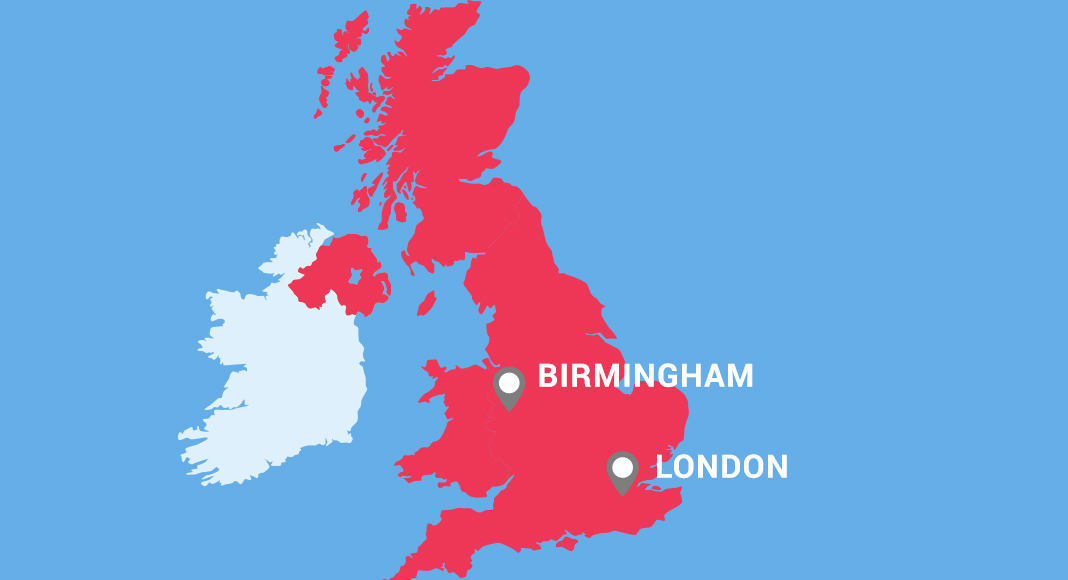
You may have already guessed it, but the Birmingham or ‘Brummie’ accent is linked to those from Birmingham, although the geographic delineations aren’t exactly precise. There is a wealth of other accents that are close to Birmingham and can seem similar to the untrained ear (for example, just 31 miles away from Birmingham, people may have a Coventry accent).
Characteristics of a Birmingham Accent
Brummie is famous for its difficulty to master. It tends to be that you’re either born into it, or you’re going to spend years trying to learn it, and even then, you may not be successful. This accent has been described as both gruff and lilting. A common mistake for those who are trying to pick up the accent is to make it sound similar to a drawl when really it’s fast and urban. You simply just have to hear it to understand.
London Accent
Now that you’re starting to get an image of the diversity of accents in the UK, you may not be as surprised to learn that a London accent isn’t a real thing either. Rather, it’s not just one sound, but at least three.
Cockney, mentioned above, originates from East England, and ‘Estuary’ is another accent from London, referring specifically to those who live around the river. RP (mentioned above) is the third accent you’re likely to find in London.
Characteristics of the Estuary Accent
According to Pronunciation Studio, “Estuary speakers would certainly drop the /h/ in function words, particularly where they appear in the middle of sentences. For example, ‘Where’s he gone?’ may sound like ‘Where’s ‘e gone?'”
Wales (Welsh English) Accent
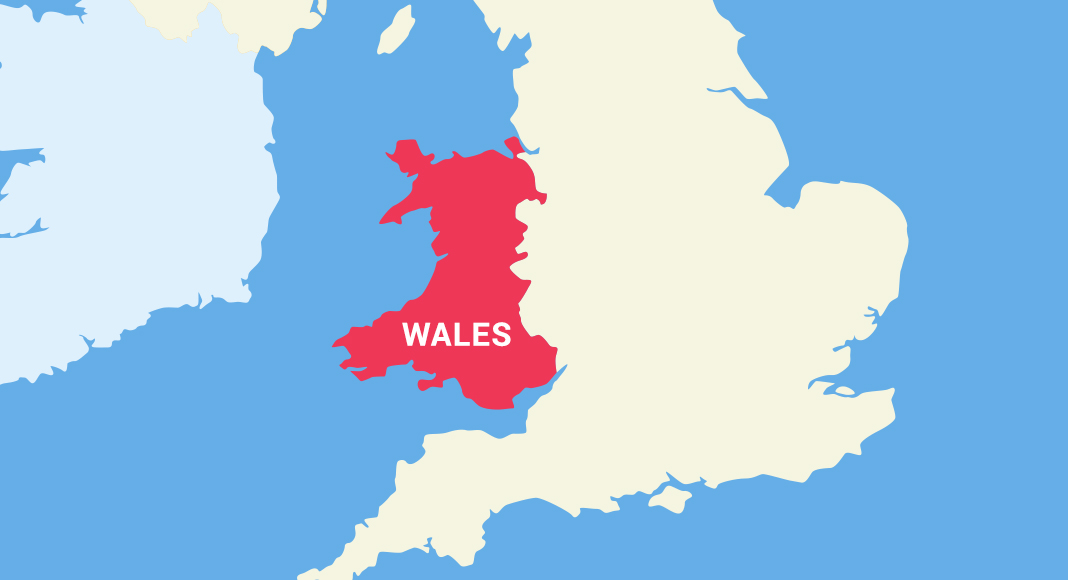
Wales is a country within Great Britain and like many of the other countries and territories, the speakers from this particular geography have a very distinctive sound.
Characteristics of the Welsh Accent
According to Babbel Magazine, the melodic Welsh English accent places a slight trill on the letter “r.” This is also a trait of Scottish accents and illustrates the Celtic influence that underpins a Welsh English accent. Interestingly, the Welsh accent doesn’t tend to place emphasis on any particular part of the word (e.g. standard English might hit the ‘lang’ in language harder than the rest of the word, whereas Welsh emphasizes the entire word equally).
Glasgow (Glaswegian) Accent
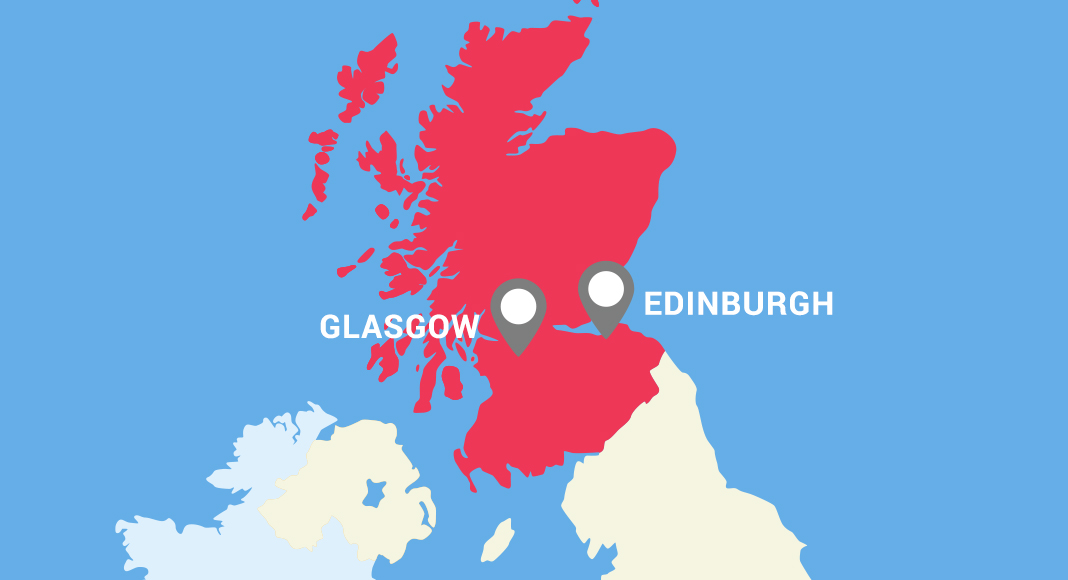
The Glasgow accent of Scotland is often described as gruff and guttural, although it’s also quite pleasant! In a recent survey, British Airlines uncovered that Glaswegian is one of America’s favorite accents.
Characteristics of the Glaswegian Accent
Glaswegian is famous for its use of a glottal stop while dropping a ‘t’ from words. For instance, a phrase like “Pass the water bottle” quickly becomes “Pass the water bole.” Because Glasgow has had a historical role as a major port, the influence of immigration from Scottish Highlanders, Irish, Italian and Eastern European people have all contributed to its unique sounds and dialect.
Edinburgh Accent

Compared to Glasgow, Edinburgh is farther West. And even though it’s only about an hour’s drive away, the accent is different from Glasgow’s.
Characteristics of the Edinburgh Accent
Edinburgh’s accent is slightly softer than Glasgow’s and has also been described as ’rounder,’ almost as though there’s an influence from London, England. Interestingly, and similar to London, Edinburgh has a range of accents, from those characterized as ‘posh’ or upper-class to those that are linked to the working class.
Northern Irish Accent
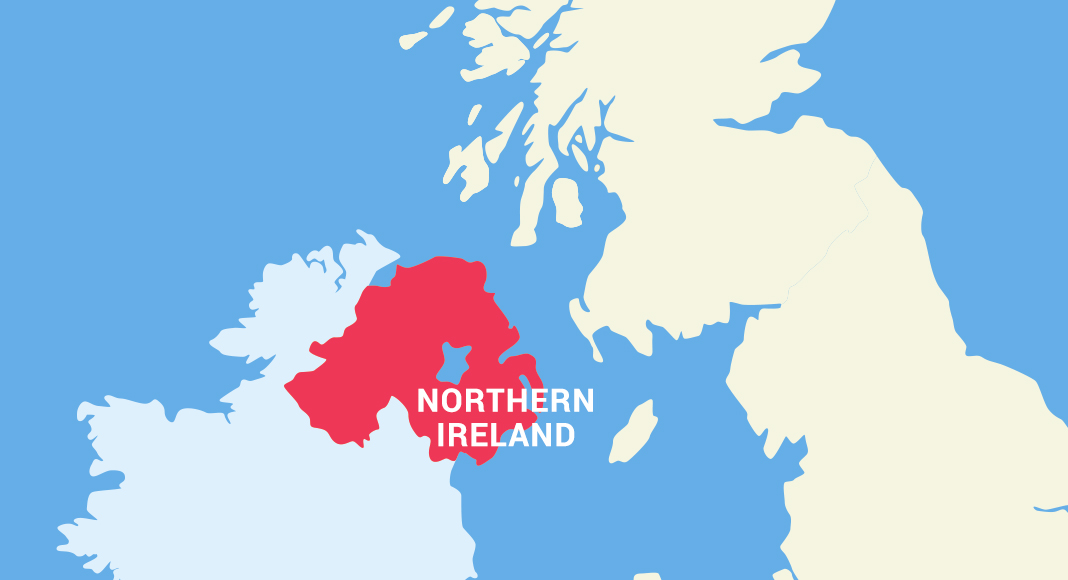
With its close proximity to Scotland and England (it’s only a ferry ride away), the Northern Irish accent is influenced by surrounding populations.
Characteristics of the Northern Irish Accent
All Irish accents tend to pronounce the ‘ru’ sound after a vowel, such as in words like ‘first,’ and ‘farther.’ However, the ‘r’ sound is closer to the English West Country accent than the rolled ‘r’ that is characteristic of Scottish English. According to Britannica, “The accents with which Northern Irish people speak English are regionally distinctive. The northeastern dialect, dominating the historic counties of Antrim and Londonderry and parts of Down, is an offshoot of central Scottish dialect. The remainder of the area, including the Lagan valley, has accents derived from England, more particularly from Cheshire, Merseyside, Greater Manchester, and southern Lancashire, as well as the West Country counties of Gloucestershire, Avon, Somerset, and Devon.”
Test Your British Accent Knowledge
You may notice that it can sometimes be difficult to tell the difference between the different accents and the specifics of British pronunciation. This is normal, especially for the untrained ear. If you want to have a little fun and see how well you know the accents of the UK, you can take our British Slang and UK Colloquialism Quiz!
What Other UK Accents Do You Know and Love?
What we’ve listed above is just a drop in the bucket and doesn’t give full credence to the diversity of accents and dialects in the UK.
Which ones would you like to see included? How would you describe them?
Are there certain accents that you feel drawn to more than others?
Bonus: If you’re a voice over actor, you might be interested in learning more about the UK Voice Acting Industry.
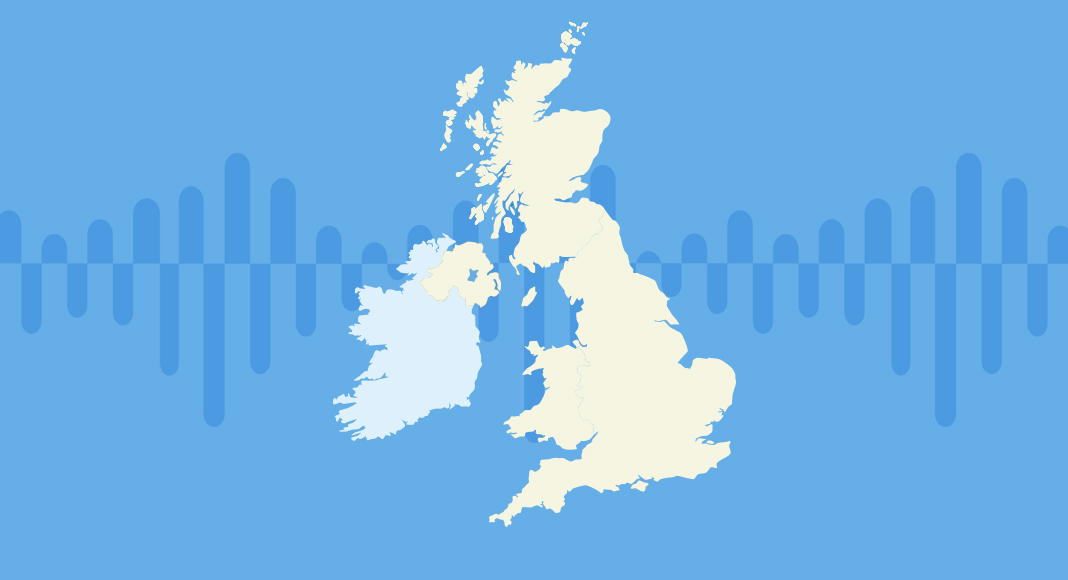
Comments
All I wanted was an actual EXAMPLE. Just a voice recording!! ??
Hey Naomi,
Check out our interactive UK Accent Map for voice recordings of British, Irish, Scottish, and Welsh accents.
You can also find said voice recordings on our YouTube page:
English accents
Irish accents
Scottish accents
Welsh accents
Hope that helps!
Oliver
Dear Oliver
I’m having trouble locating the actual accent map. All I find is error code 404. I use it in my English classes to have students explore different accents in the UK.
Can you tell me if it is still online somewhere? Thank you very much indeed.